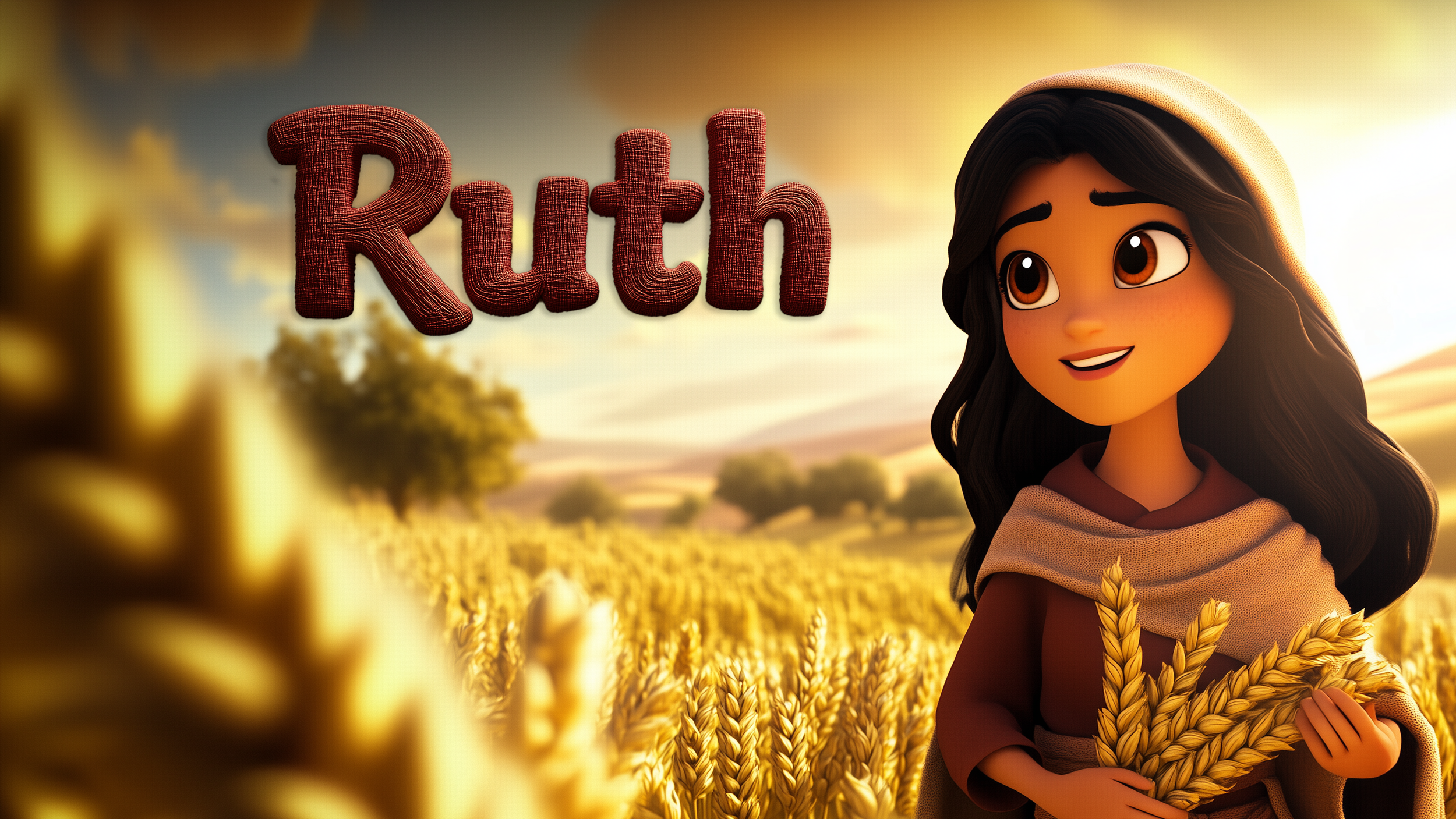Ancestor of Kings
READ
What a transformation! The story that begins with famine, death, and bitterness ends with harvest, life, and joy. To fully appreciate this ending, we need to remember how desperate things had been. Ruth had followed Naomi from Moab as a childless widow with no prospects. Naomi had returned to Bethlehem empty-handed and bitter, convinced that God had abandoned her. They had survived by Ruth's backbreaking work gleaning in the fields, living day-to-day with no security.
The courtship with Boaz had also required careful navigation of cultural customs. After Ruth's bold midnight encounter with Boaz at the threshing floor, he had to work through proper legal channels. There was a closer relative who had first rights to redeem Naomi's family property and marry Ruth, but that man declined when he learned it would complicate his inheritance. Only then could Boaz officially step in as kinsman-redeemer, purchasing the land and taking Ruth as his wife in a public ceremony at the city gate.
Ruth, who started as a foreign widow with nothing, becomes a wife, mother, and ancestor of kings. But this isn't just a fairy tale ending—it's a testimony to God's faithful character.
Let’s take a moment to read Ruth 4:13-17:
So Boaz took Ruth and she became his wife. When he made love to her, the Lord enabled her to conceive, and she gave birth to a son. The womensaid to Naomi: “Praise be to the Lord, who this day has not left you without a guardian-redeemer. May he become famous throughout Israel! He will renew your life and sustain you in your old age. For your daughter-in-law, who loves you and who is better to you than seven sons, has given him birth.”
Then Naomi took the child in her arms and cared for him. The women living there said, “Naomi has a son!” And they named him Obed. He was the father of Jesse, the father of David.
REFLECT
Notice that the text says "the Lord enabled her to conceive." This detail is particularly significant because Ruth had been married to Mahlon for about ten years in Moab without having children. In that culture, childlessness was often viewed as a sign of divine disfavor or curse. After years of wondering why she couldn't conceive, Ruth's pregnancy with Boaz is presented as a direct gift from God—a sign of His blessing and acceptance. This detail reminds us that God is actively involved in the intimate details of our lives. He doesn't just observe our stories—He authors them.
The community's celebration reveals how completely Ruth had been accepted. The women don't refer to her as "the Moabite" anymore—she's simply Naomi's beloved daughter-in-law. Their words, "who is better to you than seven sons," represent the highest praise possible in their culture. Seven was the number of completion and perfection, and sons were considered the greatest blessing. These women were saying Ruth's love was perfect and complete.
The naming of the baby is significant too. Naomi, who once asked to be called "Mara" (bitter), is now holding new life in her arms. The women name the child Obed, meaning "servant" or "worshiper," and declare that he will "renew your life and sustain you in your old age." God was not only restoring what was lost—He was multiplying it.
But the most stunning part of this ending is what we learn later: this baby Obed becomes the grandfather of King David, placing Ruth directly in the lineage of Jesus Christ. The foreign woman who chose loyalty over security becomes part of the most important family tree in history. God didn't just bless Ruth's faithfulness—He used it to bless the entire world.
Ruth's story teaches us that God specializes in redemption. He takes broken situations and creates beautiful outcomes. He honors faithfulness in small things by entrusting us with greater things. He sees the end from the beginning and weaves even our painful chapters into stories of hope.
This ending also shows us that God's blessings often exceed our expectations. Ruth just wanted to care for Naomi, but God gave her a husband, a son, and an eternal legacy. When we faithfully steward what God gives us, He multiplies it in ways we never could have imagined.
RESPOND
Take a moment to process what God might be leading you to do in light of what you read.
How has God transformed difficult seasons in your life into something beautiful?
What "small" acts of faithfulness in your life might have bigger implications than you realize?
How does Ruth's story encourage you to trust God's timing and plan for your future?
REST
Take a moment to rest in God’s presence and consider one thing you can take away from your time reading, then close your devotional experience by praying:
Heavenly Father, thank You for being the God who writes beautiful endings to difficult stories. Help me trust Your timing and Your plan, even when I can't see how things will work out. Use my faithfulness, however small, for Your greater purposes and glory. Amen.

